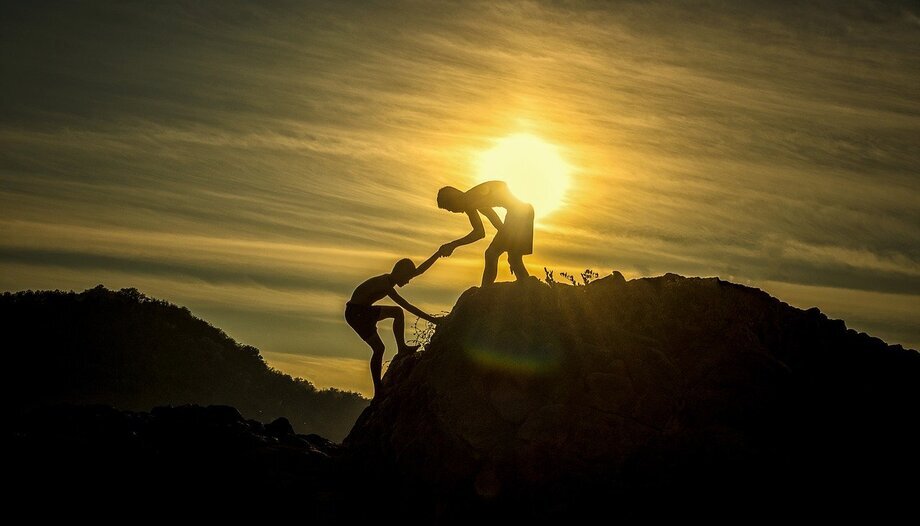 "Families have to feel the support of the administration."
"Families have to feel the support of the administration." "Investing in family is more worthwhile than anything else."
"Investing in family is more worthwhile than anything else." Demographics in Spain: a real and serious problem requiring urgent action
Demographics in Spain: a real and serious problem requiring urgent actionOMNES has interviewed the president of the European Federation of Catholic Family Associations (FAFCE), lawyer Vincenzo Bassi, who explains some of the most pressing issues related to the demographic question.
The Federation of Catholic Family Associations of Europe is 25 years old. Can you explain to our readers how this organization came into being and what initiatives it carries out?
FAFCE is a federation of associations representing 18 European countries. FAFCE's members are 23 associations and its objective is twofold. On the one hand, it presents the requests and needs of families and national associations to the European institutions. This includes not only those of the European Union but also those of the Council of Europe. On the other hand, it develops and promotes, in agreement with the local bishops' conferences, Catholic family associations in countries where they are less developed.
In view of the upcoming World Meeting of Families, FAFCE organized a conference to "celebrate the beauty of the family". How important is it to rediscover this beauty in a Europe that no longer has children?
Today, starting a family is increasingly seen as a heroic act rather than an act of generosity. Celebrating the beauty of the family serves precisely to present the usual family generosityThe family is not only a private institution, it also has public relevance. The family is not only a private institution, it also has public relevance. It is a gift to society and should not be taken for granted, but should be rewarded.
In this respect, we believe that the demographic question must become a more European issue. Our experience teaches us that it is necessary to involve and bring together the national States on this issue, and then to make the promotion of the birth rate a central point on the European agenda. On the other hand, we see that not even in the Recovery Plan for Europe We are thinking about birth rate policies. We must remember that families also initiate economic development processes. The family is the fuel that ignites the engine of society, in demographic terms, but also in terms of sustainable development.
An important occasion of this anniversary was the meeting with the Holy Father a few days ago. How did you experience those moments?
With great emotion, knowing that the Pope always encourages us to improve and make our commitment more effective. Associations and family networks must be more and more homes open to the community and not floors in which to take refuge for fear of confrontation with society.
In his speech, Pope Francis praised his contribution to the networking of families, from which flows a service to the whole society... Is that so?
Family networks are an instrument not only at the service of society but also of the Church, because through them it is easier to approach fragile people and families in difficulty. We are convinced that our contribution to the service of society will be all the more effective the more we can contribute to the service of the Church. In this sense, family networks can help, and be a tool for our pastors to stay close to the flock.
It has recently signed a Resolution reaffirming the importance of having children as an indispensable resource for the future also in ecological keyCan you explain it better?
It is all very simple and real: there will never be sustainable development without an intergenerational balance guaranteed precisely by children. That is why the real enemy of society and its sustainable development is consumerism and individualism, while families optimize resources for their own good and that of their children, and therefore for the future of society, which they will want to leave as an inheritance to their children.
The Pontiff also denounced the scourge of pornography and the inhumane practice of surrogacy. As a Federation, how do you plan to help eradicate these social scourges?
Both are a consequence of loneliness, of people and families. In loneliness, everything is a commodity, even a child or sex. In the family, one learns and experiences the gift. The more one lives the joy of the gift offered and received, the more one sees pornography and surrogacy as an aberration.
However, it must be said that behind these practices there are more or less serious existential frailties, and our task always remains that of welcoming the fragile and helping them to overcome their weakness. The Pope calls us not only to condemn the acts but also to welcome the persons, because our families are not models of perfection. Our families must bear witness that they are on a journey, generous and responsible; a journey that is sometimes difficult, but one that is traveled knowing that they are not alone, like a flock with its shepherd.











